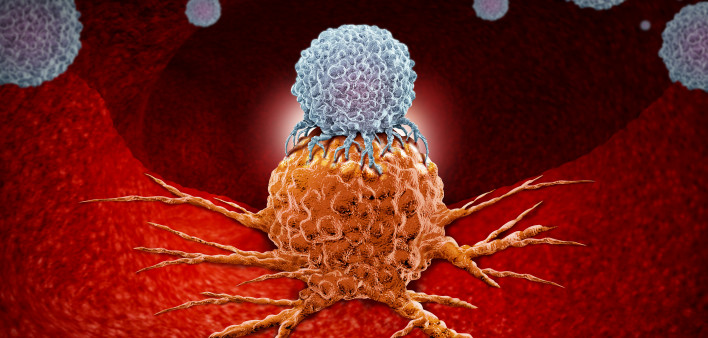Over half a million dollars was awarded to HIV scientists in the latest round of grants from amfAR, The Foundation for AIDS Research. Specifically, Anjie Zhen, PhD, of the University of California at Los Angeles received a $100,000 research grant to explore a unique method of boosting CAR-T therapy in hopes of leading to an HIV cure. And three young grantees each received a Mathilde Krim fellowship of $150,000. The fellowships are named after Krim, who helped found amfAR and publicly fought prejudice against those living with HIV.
CAR-T therapy has made headlines in recent years as a successful cancer treatment. Just last month, cancer specialists announced that the first two people treated with CAR-T therapy, a so-called living drug, remained cancer-free for a decade and could be considered cured. HIV researchers hope these findings can be applied to an HIV cure.
In the case of cancer treatment, CAR-T immunotherapy involves taking a patient’s T cells, which naturally fight infection, and sending them to a lab where they are genetically modified to recognize and attack the cancer. Meanwhile, the patient receives chemotherapy to kill off some of their existing immune cells to make room for the new modified ones, which are then infused back into the patient.
Because it must be custom made for each patient and is expensive, CAR-T therapy is not commonly used. (CAR-T therapy stands for chimeric antigen receptor T-cell therapy; the Food and Drug Administration approved it in 2017.)
An added challenge in applying the therapy to HIV is that over time, the modified CAR-T cells become exhausted and ineffective, according to an amfAR press release on the research.
With the amfAR grant, UCLA’s Zhen and her team will try to boost CAR-T therapy by combining it with autophagy drugs. Autophagy refers to the body’s natural process of ridding cells of debris. Several existing drugs can induce the process. In her earlier studies, Zhen found that autophagy can not only boost CAR-T cells’ ability to fight HIV but also lower the toxicity of drugs used to coax HIV out of latency, or hiding (which may be a necessary step in the cure process). Drugs with this coaxing ability are called latency-reversing agents (LRAs).
Zhen and her team hope to determine which autophagy drugs work best with CAR-T therapy and LRAs.
In addition to the research grant, Mathilde Krim Fellowships in Biomedical Research were awarded to the following young HIV scientists:
- Sebastian Fuchs, PhD, of the University of Miami in Florida, for his work in exploring ways to deliver foreign antibodies in a way that a person’s immune system won’t destroy them;
- Leila Giron, PhD, of The Wistar Institute in Philadelphia, for her research in understanding how cell metabolism can affect HIV’s ability to reactivate;
- Jeannette Tenthorey, PhD, of the Fred Hutchinson Cancer Research Center in Seattle, for her work in exploring how HIV avoids TRIM5alpha, an antiviral protein that restricts the virus.
To learn more about Krim, the fellowships’ namesake, see the 2018 article “Mathilde Krim, AIDS Hero and Researcher, Dies at 91” and watch the video below:
“The announcement of a new round of Mathilde Krim Fellowships is a highlight of our research calendar each year,” amfAR vice president and director of research Rowena Johnston, PhD, said in the press release. “The Krim fellowships are a fitting tribute to the pioneering spirit of our late founding chairman and an excellent means of nurturing the HIV research leaders of tomorrow.”
“These grants and fellowships reflect the vibrancy of HIV research and the wide range of innovative strategies being pursued to end the epidemic,” added amfAR’s chief executive officer Kevin Robert Frost. “We’re thrilled to support such a diverse and extremely talented group of researchers who reflect our unswerving commitment to curing HIV and making AIDS history.”
For a collection of articles about the group’s research and fundraising efforts, click #amfAR. You’ll find headlines such as:
“Does the Coronavirus Affect the HIV Reservoir?”;
“Watch Fashion Icons Film Their Own Runway Show to Fight HIV and COVID-19”;
“Why Women Are a Vital Part of HIV Cure Research [VIDEO]”; and
“Can These Three Gene Therapies Get Us Close to an HIV Cure?”







Comments
Comments